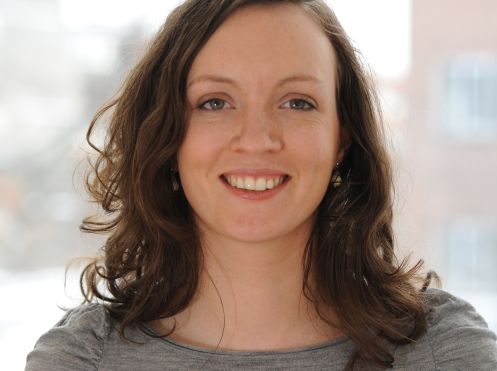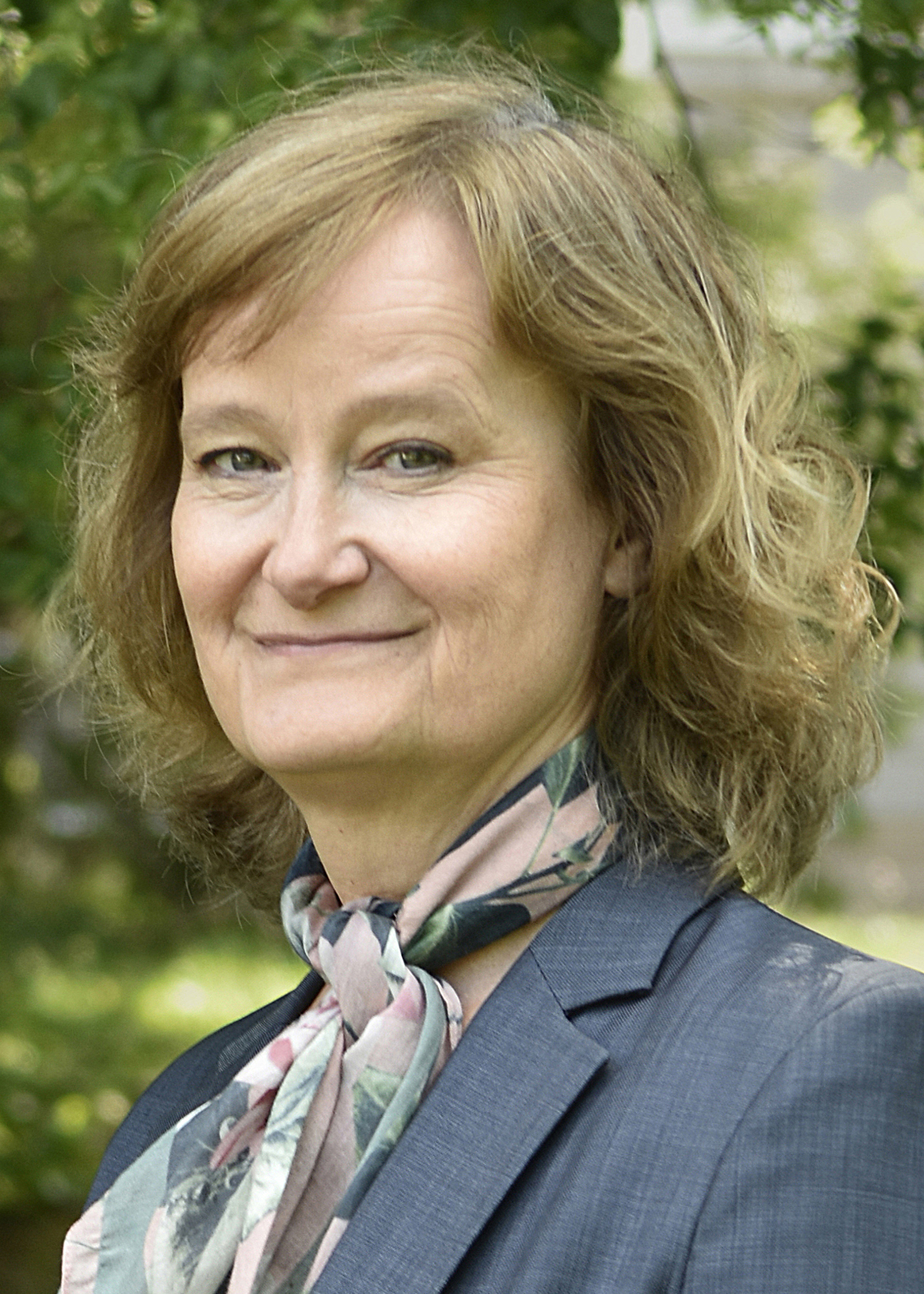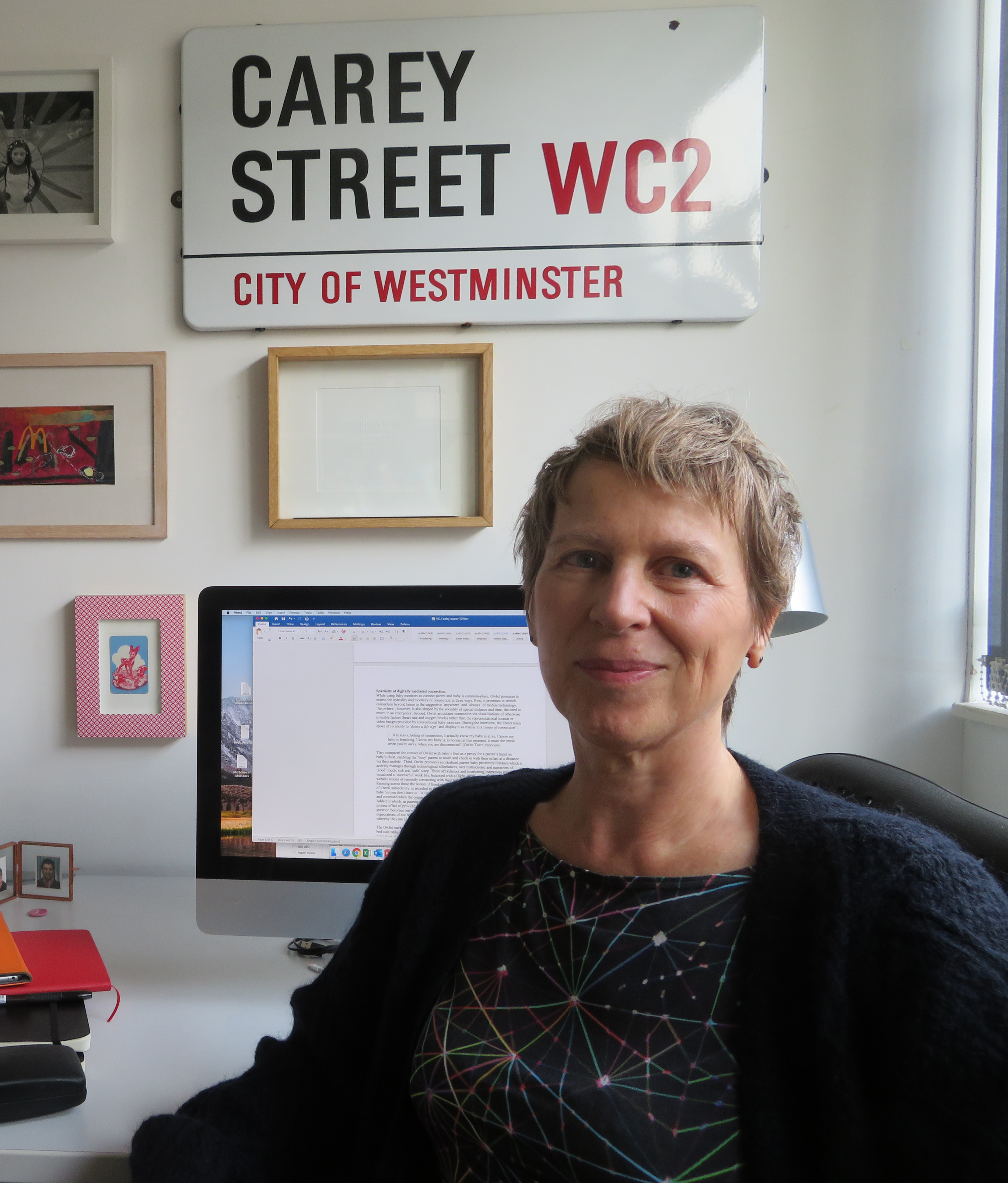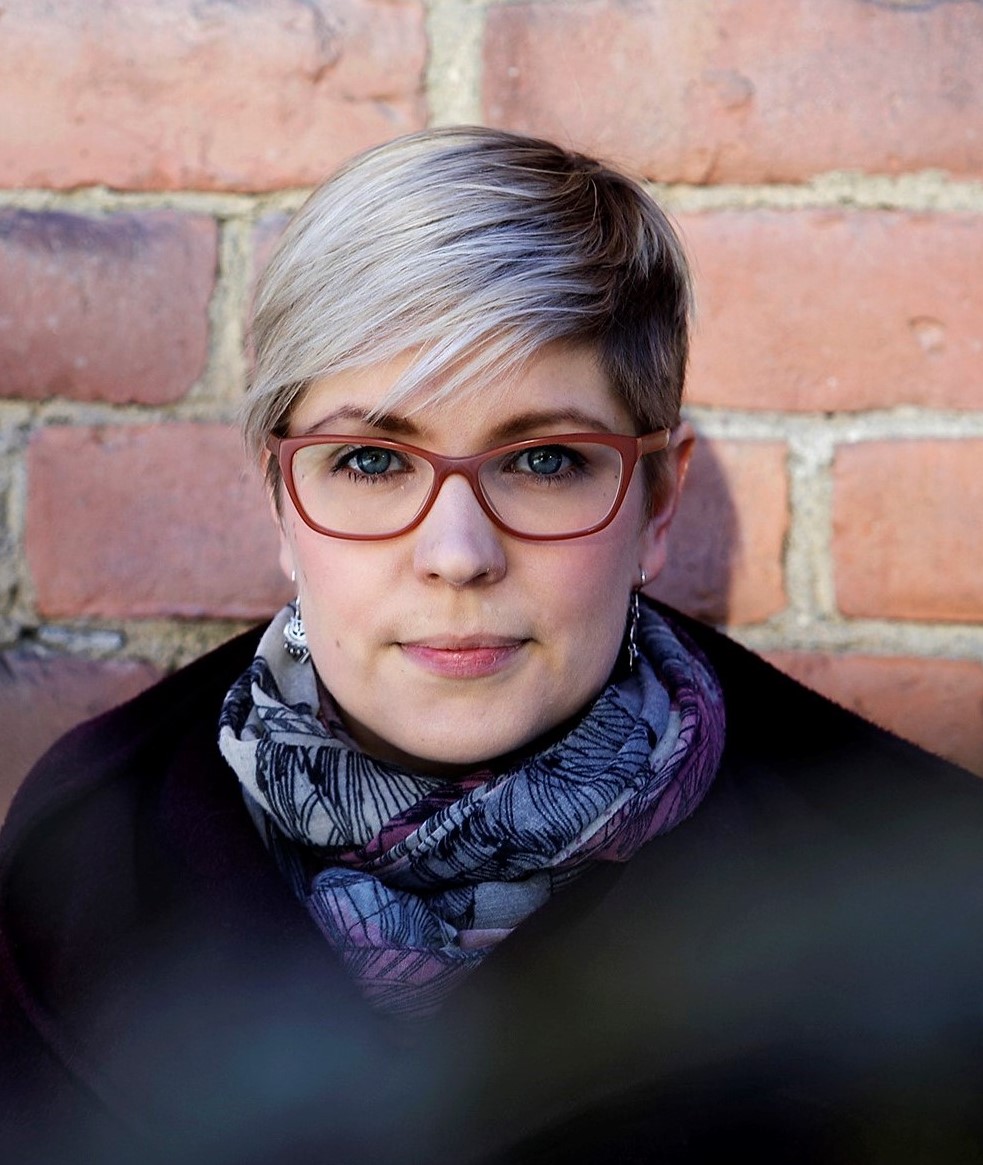Theme of the Symposium
The theme of the symposium is Language and communication in a digitalised world, which can be interpreted widely. Contributions within applied linguistics that are not directly linked to this theme are also welcome. Apart from regular session presentations, the symposium includes four plenary presentations, a panel discussion, and poster presentations.
Schedule
NB: Some presentations have been rescheduled with a new time and room.
Abstracts
Plenary Speakers
Marte Blikstad-Balas, Universitetet i Oslo
 Marte Blikstad-Balas er professor ved Universitetet i Oslo. Hun forsker på hvordan digitalisering endrer undervisning. Hun har nylig ledet en norsk offentlig utredning om bruk av learning analytics og kunstig inteligens, og har en rekke publikasjoner om elever og læreres bruk av digital teknologi i klasserommet.
Marte Blikstad-Balas er professor ved Universitetet i Oslo. Hun forsker på hvordan digitalisering endrer undervisning. Hun har nylig ledet en norsk offentlig utredning om bruk av learning analytics og kunstig inteligens, og har en rekke publikasjoner om elever og læreres bruk av digital teknologi i klasserommet.
Hva skjer med språket i det digitale klasserommet?
Professor Marte Blikstad-Balas vil i denne keynoten undersøke hva som skjer i klasserommet når stadig flere av tekstene som både leses, skrives og snakkes om er digitale. Blikstad-Balas har vært med på en rekke ulike nordiske klasseromsstudier som kartlegger digitaliseringen i skolen, og vil vise konkrete eksempler fra flere av disse. Hun vil vektlegge hvordan klasserommet som sosial arena utfordres av individuelle tekspraksiser og på hvilke måter både hva og hvordan vi leser og skriver endrer seg i overgangen fra papir til skjerm.
Mona Blåsjö, Stockholms universitet

Mona Blåsjö är professor i svenska vid Stockholms universitet. Fokus i hennes forskning är litteracitet, användning av texter och skrivande, och hur detta hänger ihop med kunskaper och handlingsmöjligheter för individer och grupper. Det innebär att hon har arbetat främst etnografiskt och vistats på arbetsplatser och i studiemiljöer. Där har hon studerat bland annat olika yrkens skriftbruk med metoder och teorier från främst medierad diskursanalys (nexusanalys), men även sociosemotiska och nyvygotskianska (sociokulturella) teorier. I två forskningsprojekt har hon undersökt digitala skriftpraktiker: "Writing to learn in digital environments" (VR, 2010-2013, projektledare Ola Knutsson) och "Professional Communication and Digital Media. Complexity, Mobility and Multilingualism in the Global Workplace" (Marcus och Amalia Wallenbergs stiftelse, 2016-2019, projektledare Mona Blåsjö).
Mellan egenmakt och övervakning. Den digitala kommunikationens roll i arbetslivet
Tillämpad språkvetenskap, inte minst nordisk, har bidragit med många viktiga analyser av professionell kommunikation och språkbruk i arbetslivet. Utifrån de teoretiska ramverken New Literacy Studies och medierad diskursanalys/nexusanalys delger Mona Blåsjö i detta föredrag resultat från ett treårigt etnografiskt projekt om vardaglig kommunikation på kontorsarbetsplatser i Sverige. Presentationen fokuserar på hur digitala praktiker och redskap inverkar på en skala från egenmakt (agency) och inkludering till övervakning, styrning och exkludering. I samband med dessa diskuteras det komplexa samspelet mellan en nivå med ”de digitala jättarna” Microsoft, Google etc. och en nivå med ”små” litteracitetspraktiker som att dela dokument i digitala utrymmen, använda lösenord och skriva sökord. Företagsledningar använder digitala redskap för att styra organisationen, och anställda gör ibland motstånd mot styrningen genom val av språk och medium bl.a. för att skydda sin privata sfär mot digital insyn. De digitala medierna och praktikerna är intimt förknippade med professionella roller och sociala strukturer, vilket här syns i bl.a. hur en chef kan ge en ”diskursiv nyckel” till anställda genom att bjuda in till sin digitala kalender. Samtidigt kan höga chefer uppleva sig bundna till denna kalender, till ständiga digitala förändringar och till vardagliga litteracitetspraktiker som att klippa och klistra information. En ledning som har ambitionen att inkludera olika interna grupper riskerar att även exkludera pga alltför mycket information. Dessa komplexa villkor på moderna arbetsplatser diskuteras som sociomateriella faktorer där diskursiva redskap har olika historisk bakgrund av maktrelationer. Avslutningsvis diskuteras tillämpad språkvetenskaps framtida roll och metoder i relation till föränderlig arbetslivkommunikation.
Föredraget hålls på svenska.
Carey Jewitt, University College London

Carey Jewitt is Professor of Communication & Technology, at UCL Knowledge Lab, IOE, and Chair of the UCL Collaborative Social Science Domain, University College London, UK. Her research is on how digital technologies re-mediate interaction, multimodality, and interdisciplinary methodological innovation. She is director of IN-TOUCH a 5-year ERC Consolidator Award (in-touch-digital.com) which explores the social implications of how touch is being brought into the design and use of digital touch devices and environments. Carey has co-founded two Sage journals, Visual Communication (editor 2000-2016) and Multimodality & Society (2020 -) and her most recent co-authored books include Digital Touch (Polity Press, 2023), Interdisciplinary Insights for Digital Touch Communication (2020), Introducing Multimodality (2016), The Sage Handbook of Researching Digital Technologies (2014), and The Routledge Handbook of Multimodal Analysis (2014).
Digital Touch Communication: ways of feeling
Some of us first encountered digitally mediated touch when it crept into our hands and pockets via the mobile phone or a touch screen in a bank, a museum, at work or at home. For those born in the 2000s, digital touch has always been present. I will reach out beyond the touch screens and vibrating notifications that feature in the everyday sensorium for many of us, to explore digital touch in the context of more advanced touch technologies that bring more complexity to digital touch communication. Using examples from my recent InTouch project, I will discuss why touch matters as it enters the technoscape of digital communication its potential to herald a move beyond ways of seeing to stretch the possibilities of ways of feeling the world around us. I will discuss if, when and how advances in touch technologies promise to change touch practices, and what this may mean at a fundamental level for what people count as touch. I will argue for an expanded view of touch with attention to the touching body through a multimodal and multisensory lens to understand what digital touch is, how it becomes meaningful, and explore what that means for the place of digital touch technologies in our communicative world.
Maiju Strömmer, Jyväskylä universitet

Maiju Strömmer is a researcher in the Department of Language and Communication Studies at University of Jyväskylä. Her research interests cover work, multilingualism, (in)equalities, and political economy. Using nexus analysis, discourse analysis, and ethnography, she has explored language questions within cleaning, mining, and tourism industries, as well as in vocational education and training. Her current research project on digital gig work explores how multilingual freelancers construct employable subjectivity via digital platforms.
Maiju’s publications on language and work include Affordances and constraints: Second language learning in cleaning work (2016, Multilingua), In the name of security: Governmentality apparatus in a multilingual mine in Arctic Finland (2021, Journal of Sociolinguistics), Conditions of commodification: Russian as a transient commodity in an Arctic tourism resort (2022, with Sebastian Muth, International Journal of the Sociology of Language) and Becoming a multilingual health professional in vocational education – two adult migrants' translanguaging trajectories (2022, with Sanna Mustonen, Journal of Multilingual and Multicultural Development).
The governmentality of multilingual work in a digitalised world
In the current working life, work communities and teams are often multilingual due to global megatrends such as digitalization, migration, and rapidly evolving artificial intelligence. There are different modes to manage the multilingual work process: some companies emphasize standardization and tight control while others try to optimize the quality of work by autonomy, flexibility, and skills development (see Heller 2010). In this keynote I discuss how multilingual work is governed. Theoretically, I apply the concept of ‘governmentality’, which refers to the technologies that aim to make individuals – in this case multilingual workers – perform in beneficial and desired ways, a process in which discourse is essential (Foucault 2002; Urla 2019). I illustrate the governmentality technologies by presenting ethnographic studies conducted in two different contexts: in a multilingual mine in northern Finland and in a global digital labor platform. I draw on nexus analysis (Scollon & Scollon 2007) to trace the connectivity and interaction between the trajectories of practices, social actors, and discourses that intersect and enable the social action under scrutiny.
I will argue that despite their differences, the multilingual workers in both contexts are under digital surveillance that control the work process (and success). In the mine, the safe work routine is governed by surveillance, supervision, and regulations. I will illustrate how safe and smooth work process was made as a responsibility of mining workers by discursive strategies and digital reporting. Gig work performed via digital labor platforms, on the other hand, is marketed as flexible work that can be done anytime anywhere. However, the ideals of flexibility and autonomy are in tension with the algorithmic control, rankings, and success rates. I will discuss how multilingual text workers such as content writers and translators navigate these tensions. Finally, I will consider how language and discourse are employed in these governmentality technologies.
The ethnographic data is conducted in two research projects: 1) Cold Rush: Dynamics of language and identity in expanding Arctic economic hotspots (Academy of Finland, PI: prof. Sari Pietikäinen) and 2) Multilingual text work in the platform economy (Kone Foundation, PI: Maiju Strömmer).
References
Foucault, M. 2002. Governmentality. In J. D. Faubion (Ed.) Essential works of Foucault 1954–1984: Volume 3, Power, pp. 201–222. London: Penguin Books.
Heller, M.2010. The commodification of language. Annual Review of Anthropology 39, 101–114.
Scollon, R. & Scollon, S. W. 2007. Nexus analysis: Refocusing ethnography on action. Journal of Sociolinguistics 11 (5), 608–625.
Urla, J. 2019. Governmentality and language. Annual Review of Anthropology 48, 261–278.
Registration
Conference Fees
Early Bird from January 15 to February 1, 2024
- 2080 SEK for government employees in Sweden
- 2600 SEK for others
Regular from February 2 to March 1, 2024
- 2320 SEK for government employees in Sweden
- 2900 SEK for others
The conference fee includes all sessions, conference materials, two lunches, coffee breaks, and the conference dinner on Thursday, April 18, 2024.
Please note that to attend the symposium, you must be an ASLA member. To become a member, follow the instructions on the ASLA website under the heading Hur blir du medlem? The bank information is provided there. For students, doctoral students, and pensioners, the membership fee is 200 SEK. For everyone else, the membership fee is 400 SEK.
Please note that for a conference fee refund, you must cancel your registration by, at the latest, April 2, 2024.
Important Dates
- 15 August 2023: Submission of abstracts begins
15 October 2023NOTE! 31 October 2023 (extended): Final day for submission of abstracts- 15 December 2023: Decision on abstracts sent by this date
- 15 January 2024: Conference registration begins
- 1 February 2024: Final day for Early Bird registration
- 1 March 2024: Final day for registration
- 18–19 April 2024: ASLA symposium takes place
Programme
April 18
| Time | Event |
| 08.40–09.40 | Registration and coffee |
| 09.40–10.00 | Opening ceremony in the university library |
| 10.00–11.00 | PLENARY 1 |
| 11.00–12.30 | Presentations |
| 12.30–13.30 | Lunch |
| 13.30–15.30 | Presentations |
| 15.30–16.00 | Coffee |
| 16.00–17.00 | PLENARY 2 |
| 17.00–18.00 | ASLA annual meeting |
| 18.30– | Conference dinner incl. Award ceremony ASLA essay prize |
April 19
| Time | Event |
| 09.00–10.00 | PLENARY 3 |
| 10.00–11.30 | Presentations |
| 11.30–12.00 | Round table discussion |
| 12.00–13.00 | Lunch |
| 13.00–14.30 | Presentations |
| 14.30–15.00 | Coffee |
| 15.00–16.00 | PLENARY 4 |
| 16.00–16.30 | Closing and a look ahead |
Organising Committee
Boglárka Straszer (chair), Mariya Aida Niendorf, Miguel Garcia-Yeste, Sofia Lindén, Marie Nordmark, Jenny Rosén and Jonathan White
- Boglárka Straszer
- Mariya Aida Niendorf
- Miguel Garcia-Yeste
- Sofia Lindén
- Marie Nordmark
- Jonathan White
- Åsa Wedin
Accomodation
Most visitors coming to the university stay at Scandic Lugnet Falun. This hotel is situated in the very vicinity of the university.
The three remaining hotels in the city are all situated close to the train station. From there, it is about 20 minutes’ walk uphill to the university campus. These hotels are: